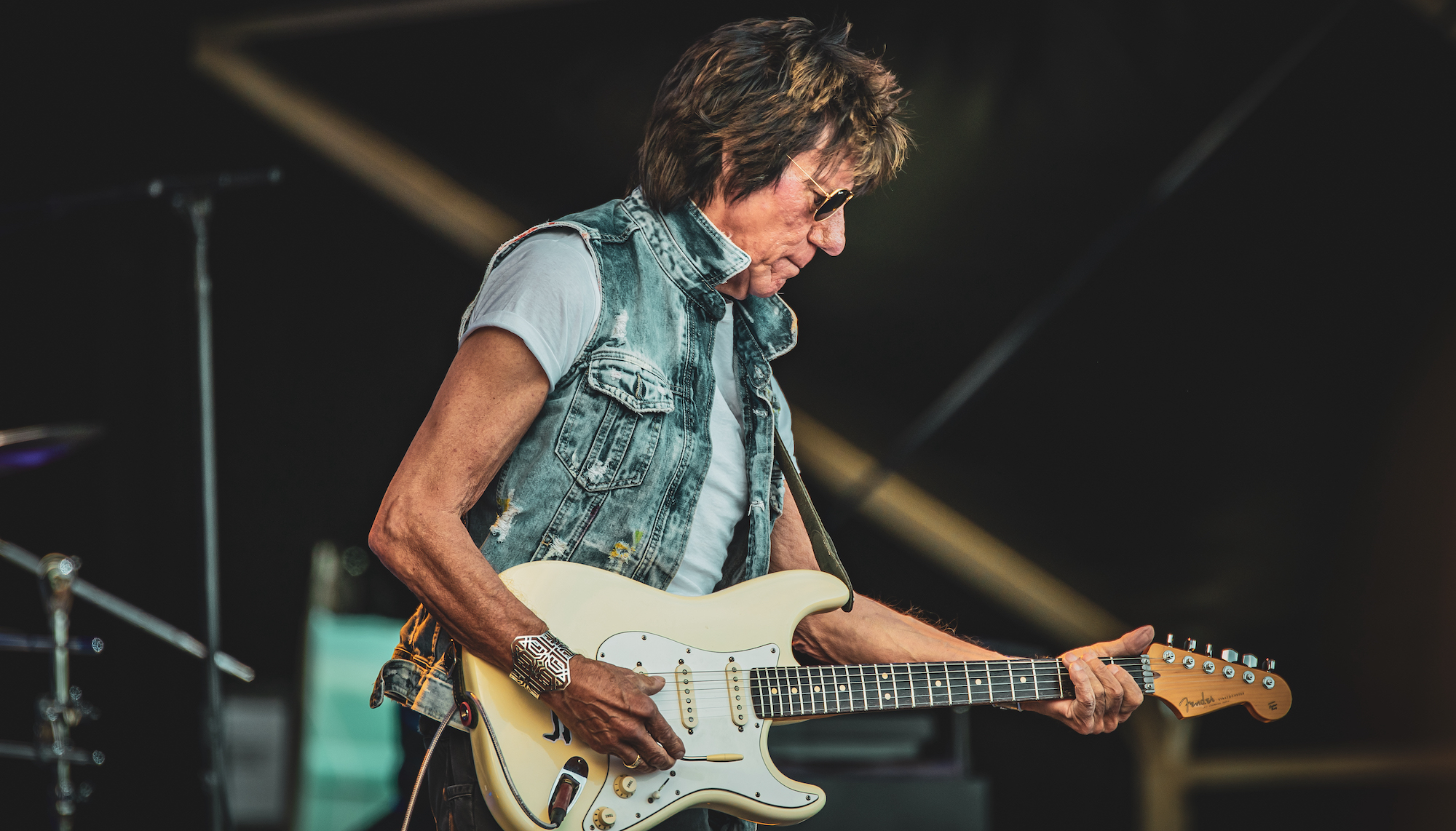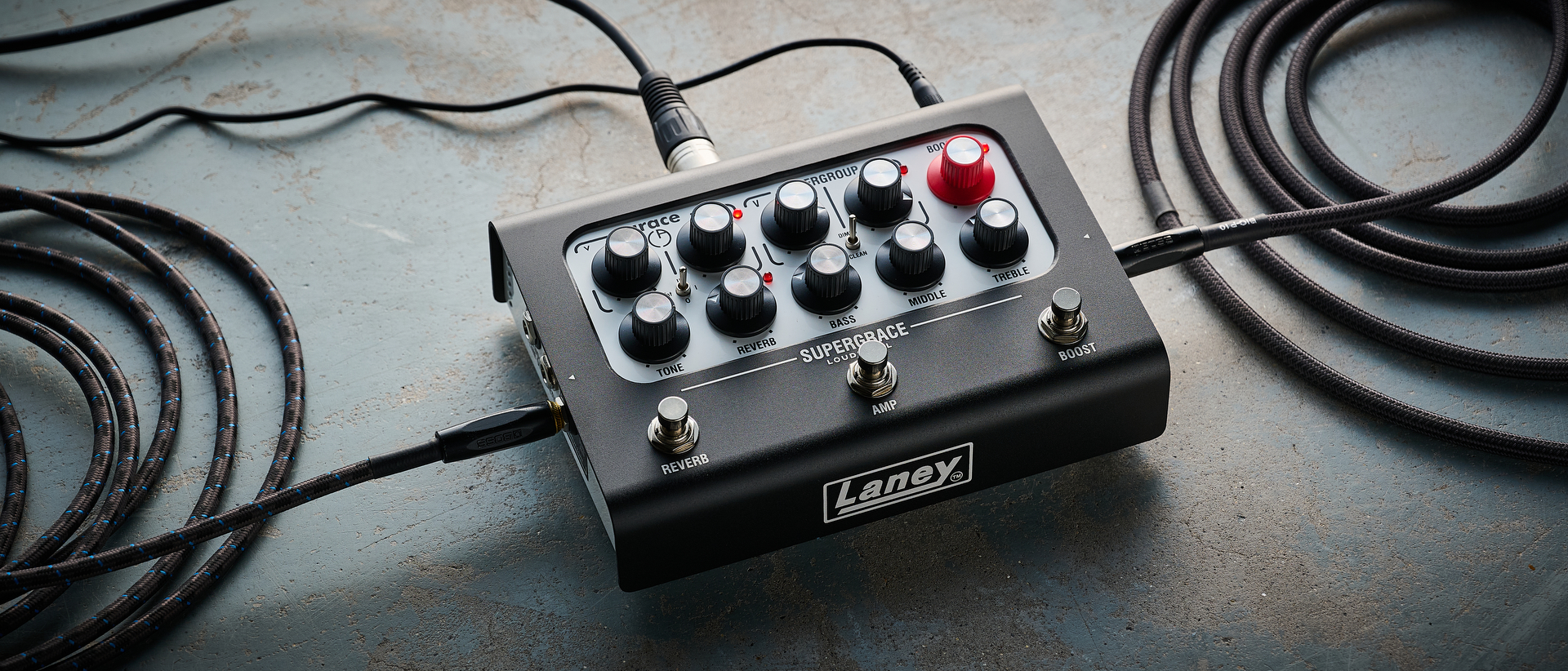Jeff Beck, a giant of rock guitar, dies at 78
Beck's representatives said the guitar great passed away after contracting bacterial meningitis

All the latest guitar news, interviews, lessons, reviews, deals and more, direct to your inbox!
You are now subscribed
Your newsletter sign-up was successful
Jeff Beck, a legendary guitarist whose unique approach to the instrument helped define rock guitar playing from the '60s onward, has died at the age of 78, his representatives confirmed Wednesday afternoon (January 11).
"On behalf of his family, it is with deep and profound sadness that we share the news of Jeff Beck’s passing," read a statement from his representatives, which was also posted to the guitarist's social media pages. "After suddenly contracting bacterial meningitis, he peacefully passed away yesterday. His family ask for privacy while they process this tremendous loss."
A post shared by Jeff Beck (@jeffbeckofficial)
A photo posted by on
Widely regarded as one of the greatest, and most influential, guitarists of all time, Jeff Beck incorporated elements of blues and jazz into a distinctive, hard-edged sound that left an indelible mark on rock guitar playing.
Over the course of an illustrious 60-year career that stretched from the Yardbirds to 18, his 2022 album with Johnny Depp, Beck influenced the approach of countless thousands of guitarists in his wake.
Inducted into the Rock and Roll Hall of Fame not once, but twice – once with The Yardbirds, in 1992, and again as a solo artist, in 2009 – Beck's legacy as a guitarist is profound.
Famous for not using a pick, he developed a remarkably expressive guitar style – highlighted by stunning bends, impeccable phrasing and daring, elegantly executed melodic runs – that transcended genre,
“If you use a pick, you’ve got several fingers which are just redundant, they're not doing anything," he explained to Guitar World in a 1985 interview. "But with five fingers you can do all kinds of stuff you can't properly get at with a pick. You can do railing figures like bluegrass, you can pick out notes of a chord and twang them, push them, bend them, anything you want.”
All the latest guitar news, interviews, lessons, reviews, deals and more, direct to your inbox!
Born in Wallington, England in 1944, Beck was influenced by early rock 'n' roll and blues from a young age. An avid guitarist by his teen years, Beck cut his teeth in London-area groups like Deltones, the Rumbles, and Screaming Lord Sutch and the Savages in the early '60s, before joining – on the recommendation of one Jimmy Page – the Yardbirds in 1965.
Replacing the band's previous guitarist, Eric Clapton, was no easy task, for anyone, but Beck did so with aplomb. Though the Yardbirds were under pressure to produce hits (which they certainly did) Beck was able to experiment in his new role with the band, and in doing so helped set the template for psychedelic-, blues- and garage-rock guitar playing.
Soon though, Beck tired of the rat race of fame – and the incessant package tours the Yardbirds were constantly sent on – and left the band in fall 1966.
“It was traumatic leaving the Yardbirds," Beck told Guitar World in 2009. "Because I just walked out on the one thing that gave me life, gave me recognition. It was pretty tough. I didn’t feel proud about dumping them in the shit. I got home and faced a bleak winter in England with nothing to do. So I must have been desperately unhappy to do what I did.”
Difficult as it may have seemed at the time to top his tenure with the Yardbirds, Beck's solo career would go on to be even more extraordinary than those fruitful mid-60s years.
His first-ever solo release was Beck's Bolero, a dazzling, eons-ahead-of-its-time epic of an instrumental featuring Jimmy Page, John Paul Jones and The Who's Keith Moon on drums. The song would go on to appear on Truth, the 1968 debut album of his Jeff Beck Group.
Where Beck's Bolero would inform decades of guitar instrumentals to come, Truth – and its 1969 follow-up, Beck-Ola – helped shape the sound of blues- and hard-rock guitar.
After the first Jeff Beck Group – which featured, among other accomplished members, Rod Stewart on vocals and future Rolling Stone Ronnie Wood – dissolved in 1969, Beck formed a new, somewhat short-lived version of the group in 1970, before forming the power trio Beck, Bogert & Appice with Tim Bogert and drummer Carmine Appice.
Though still successful, Beck felt creatively restless by the mid-70s, and in 1975, changed direction yet again on what many consider his greatest work, Blow by Blow.
Helmed by legendary Beatles producer George Martin, the all-instrumental album dove head-first into the fusion sounds that were then in vogue, taking the somewhat divisive genre a step forward all the while.
"A lot of people liked Blow by Blow because it simplified [John] McLaughlin and it complicated rock and roll," Beck explained to Guitar World in 2009.
Though one might think that someone who played such a significant role in shaping rock guitar in the '60s and '70s would be content to sit on their laurels a bit, Beck's later career was defined by a similar creative restlessness.
He returned to his rockabilly roots on 1993's Crazy Legs, flirted with techno on 1999's Who Else!, and touched on classical orchestral arrangements on 2010's Emotion & Commotion.
"If you ask me about some other players, I might lean toward their early work but with Jeff Beck, I immediately think of his most recent record," Joe Satriani told Guitar World in 2021, when reflecting on his favorite Beck material.
"How does he make us all feel that the most happening Jeff Beck is the one that’s happening right now? That’s pretty remarkable in an industry that’s so focused on what you did decades ago or your highest-charting thing.
"As you and I are talking," Satriani continued, "he’s working on something that’s going to blow us away, and we’re not going to know about it for a bit, but you know he isn’t just sitting around doing nothing and he’s certainly not thinking about something he did in 1972! It’s a combination of pure talent, constant innovation and fearlessness."
Jackson is an Associate Editor at GuitarWorld.com. He’s been writing and editing stories about new gear, technique and guitar-driven music both old and new since 2014, and has also written extensively on the same topics for Guitar Player. Elsewhere, his album reviews and essays have appeared in Louder and Unrecorded. Though open to music of all kinds, his greatest love has always been indie, and everything that falls under its massive umbrella. To that end, you can find him on Twitter crowing about whatever great new guitar band you need to drop everything to hear right now.



